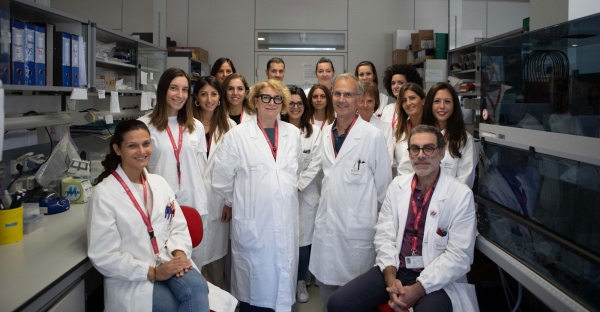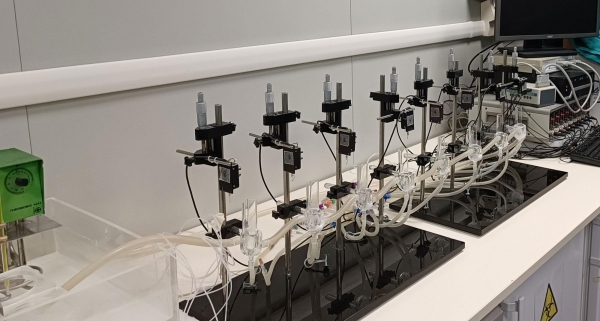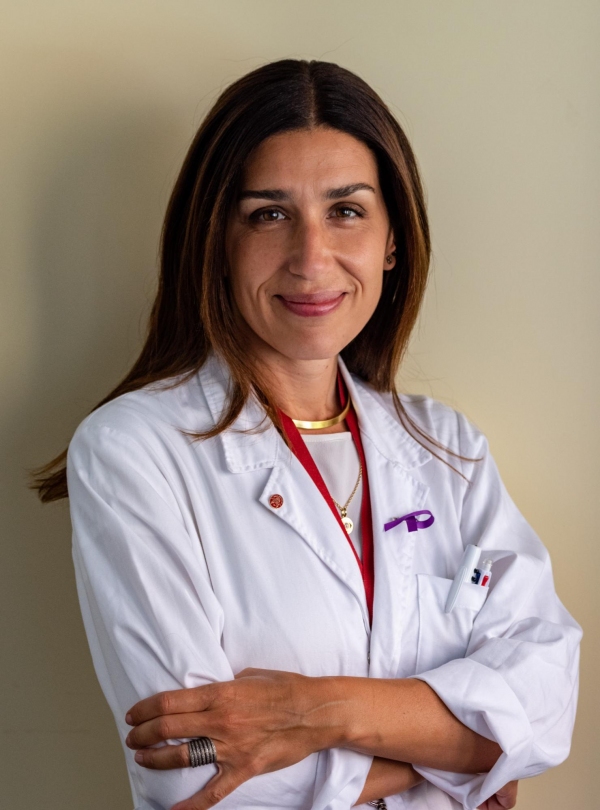New precision medicine approaches in gastroenterology and hepatology /
Medicine and Metabolic Disease
Nonalcoholic hepatic steatosis (NAFLD):
Focus of the research activity of the Laboratory of Metabolic Liver Diseases is the study of the molecular, cellular, and genetic mechanisms underlying NAFLD-the most prevalent liver disease in the world-that predispose to progression to more severe forms, in order to identify new early biomarkers of disease and develop personalized therapies. The approach used is that of translational medicine, which starts with clinical observations, goes through a process of study through genetic analysis conducted on large cohorts of patients and the use of cellular and animal models exploiting state-of-the-art techniques, and then returns to the patient. Finally, the Laboratory also focuses on studying the role of macro/micronutrients and their interaction with genetic factors predisposing to the development of hepatic steatosis.
Clinical research activity is closely linked to laboratory activity with nonprofit observational, prospective, and interventional projects. As described in the previous paragraphs, the goal is to define diagnostic and therapeutic procedures of nonalcoholic hepatic steatosis (NAFLD) in the different degrees of disease severity (steatohepatitis (NASH) fibrosis, cirrhosis and hepatocarcinoma (HCC) and cardiovascular and metabolic complications. In addition, the presence of metabolic liver disease and major complications is also assessed in particular case series such as endocrinological diseases and HIV infection. In addition, the risk of developing liver disease later in life is assessed by evaluating the transition from child/adolescent to young adult (in collaboration with Pediatrics).
Impaired metabolic diseases:
Flagship activities include screening programs for the prevention of metabolic liver disease, diagnostic pathways to assess the degree of liver disease progression, procedures to identify cardiovascular and neoplastic complications, a genetic assessment of predisposition to increased disease severity and its complications, genetic screening for familial dyslipidemias by sequencing (clinical exome and target panels), clinical trials of new drugs, and finally the setting of the cornerstones of therapy, which is aimed at both putting into practice correct lifestyles (dietary advice, weight loss, physical activity) and the setting of possible drug therapy.
Relationship between iron, metabolic alterations and liver carcinogenesis:
The Lab also focuses on the study of iron metabolism, and its relationship to the metabolic syndrome. Specifically, the processes underlying the interaction between iron and regulation of glycolipid metabolism and insulin resistance, which in turn may be involved in the development of liver cancer, are evaluated. Finally, genetic factors predisposing to martial overload disease are being investigated through optimization of dedicated diagnostic processes. In addition, diagnostic tests have been implemented through the application of sequencing techniques (clinical exome and target panels) for the genetic determination of rare diseases such as Hemochromatosis, Wilson's disease, and congenital alpha1-antitrypsin deficiency.
- QuantStudio™ 3 Real-Time PCR System
- NGS Platform (MiSeq and NextSeq)
- Luminex
- Bambino Gesù Children's Hospital of Rome
- Policlinico Universitario A. Gemelli IRCCS Foundation of Rome
- Policlinico Universitario Campus-Biomedico Foundation of Rome
- Hospital of Acireale, Catania Provincial Health Authority
- National Research Council Milan Research Area (CNR - Segrate)
- National Research Council Research Area of Pisa (CNR - Pisa)
- Institute of Clinical Physiology (IFC)
- University of Milan
- University of Udine
- University of Verona
- University of Salerno
- University of Foggia
- University of Palermo
- Columbia University
- Medical University of Vienna
- University of Navarra, CIMA
- Clínica Universitária de Gastrenterologia da Faculdade de Medicina da Universidade de Lisboa
- Imperial College Healthcare NHS
- McGill University Health Centre, Royal Victoria Hospital - Site Glen, Montreal
1 associate professor, 1 nutritionist, 1 psychologist, 1 data manager, 3 health researchers, 4 internists











